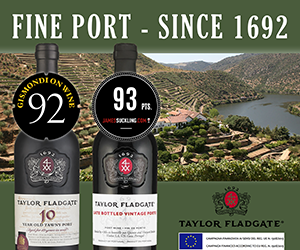I enjoyed Vancouver lawyer, Al Hudec's Facebook post (pasted below) on the recent sale of Tinhorn Creek, Black Hills and Gray Monk three well known, and for many consumers, beloved BC wineries.
Here are some of my thoughts.
First, if your exit strategy is to sell your investment and realize some impressive gains, congratulations to all. None of us know what really motivates anyone to sell, or buy, a winery so why speculate further.
I have been repeatedly asked if is this a good deal for BC wine. If you mean for the business of BC wine, I can only think the shareholders of Peller think so. Let's face it, they spent nearly $100 million dollars.
I can only take recently retired winemaker Howard Soon's word for it because he always had nothing but good to say about the Peller family. I also have great faith in chief winemaker Craig MacDonald, who was almost forgotten down the long list of CEOs and COOs involved in a deal where his work will be what all is judged by over the next decade.
It would have been nice to hear from a winemaker about the deal.
Do I think it’s a good deal for the culture of BC wine? No, not a chance, if only because it means Ontario, via Peller and Arterra, now controls 75 percent of the BC wine business, 5,000 kilometers from BC vineyards. I'm guessing Ontario wine producers wouldn't be too happy about BC owning 75 percent of their wine business.
It would have been nice to have announced the deal in the middle of Tinhorn's newly minted sub-appellation the Golden Mile Bench, or alongside The Heiss family in their historic Lake Country vineyard, or among the vines of the great Black Sage Bench, home to Black Hills. I mean, if you really want to shine the light on BC and the future of wine in Canada.
In the wine world that I aspire to, the great wineries are passed from generation to generation, their brands are the winery’s name not its label. My guess is EBITDAs are going to be a big part of the future of wine in Canada and my response will be the same as it was when I first encountered the abbreviation after Robert Mondavi was sold to Constellation and I was sent the first quarter results.
“Hi there Mr. Comptroller, thanks for the financial update, but is there any news about the harvest? ag
From Al Hudec (Facebook: @AlHuduc):
"Further observations on the Andrew Peller acquisition of Black Hills, Grey Monk and Tinhorn Creek
Andrew Peller, an Ontario based public company, has just announced that it is acquiring three leading Okanagan estate VQA wineries- Black Hills Estates, Grey Monk and Tinhorn Creek.
Andrew Peller is paying in aggregate $95 million for the three wineries (including the $17 million of Andrew Peller shares being issued to the Heiss family as partial consideration for Grey Monk). Together, the three wineries had production last year of 125,000 cases and sales of $24.5 million, and own 250 acres of vineyards.
The three Peller acquisitions represent the most significant industry roll up since Don Triggs created Vincor and consolidated Inniskillan, Sumac Ridge, Hawthorne and other successful wineries almost twenty years ago. The acquisitions make Andrew Peller the largest domestic wine business in English Canada and the largest producer of VQA wines in British Columbia. The three new wineries join Andrew Peller’s existing portfolio of premium VQA wineries in British Columbia – Sandhill, Red Rooster and Conviction (formerly Calona Vineyard’s VQA Artist Series Brand) and Trius, Thirty Bench and Wayne Gretzky in Ontario.
The transactions will undoubtedly add to the ongoing industry debate about whether the larger or smaller producers contribute more to the development and reputation of the Okanagan wine industry. Many of the smaller winery owners are distrustful of the larger wineries who, in addition to operating boutique wineries, also derive significant revenues from the sale of cheaper wines blended from foreign and domestic grapes. As a result, as the argument goes, the interests of these larger wineries are not aligned with the interests of the smaller owner operated wineries.
Certainly, George and Trudy Heiss of Grey Monk, as industry pioneers, contributed immensely to what the Okanagan wine industry has become. Sandra Oldfield of Tinhorn Creek. is an outspoken industry leader who put sustainability first in everything she has done. Glenn Fawcett built Black Hills into a luxury brand worthy of the Area 27 crowd.
But the large wineries also have a role to play. Andrew Peller intends to invest $25 million in its Western Canadian wineries in the next five years, increasing the collective annual revenues of its new BC acquisitions from $24.5 million to $30-$35 million per year over the next five years, and increasing normalized EBITDA from $8.2 million to $15 million annually. This will be achieved through capital investment in vineyards and wineries; increased sales and margin expansion through the leveraging of its national sales and marketing capabilities across Canada; and operational efficiencies in production and packaging.
The smaller owner operators contribute their entrepreneurship and innovation to the growth and reputation of our industry. But often it is the larger, better capitalized wineries, with their strong internal sales and marketing groups, that have what is necessary to take a successful winery to the next level when it's founders are looking for an exit. Both small and large wineries play important roles in the success of our Okanagan wine industry."
Written By: ag

 quicksearch
quicksearch





